This blog is the notes for the book: Pragmatic Thinking and Learning: Refactor Your Wetware by Andy Hunt.
Tips
Always consider the context.
- Rules for novices, intuition for experts.
- Know what you don’t know.
- Learn by watching and imitating.
- Keep practing in order to remain expert.
- Avoid formal methods if you need creativity, intuition, or inventivenss.
Learn the skill of learning.
- Capture all ideas to get more of them.
- Learn by synthesis as well as by analysis.
- Strive for good design; it really works better.
- Rewire your brain with belief and constant practice.
Chapter 2
- Novices(rules) -> Advanced Beginners(no big picture) -> Competent(troubleshoot) -> Proficient(self-correct) -> Expert(intuition)
- Unskilled and unaware of it. In the contrary, an expert are always thinking about how little they know.
“Ignorance more frequently begets confidence than does knowledge.” – Charles Darwin
- Most people are just advanced beginners.
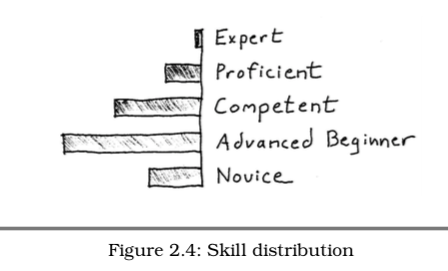
- Deliberate practice requires four conditions:
- A well-defined task.
- The task should be challenging but doable.
- An environment that supplies informative feedback that you can act on.
- Opportunities for repitition and correction of errors.
- Take responsibilities. “I was just following orders!” doesn’t work.
- Power of good examplars. Imitate -> Assimilate -> Innovate
- There is no expertise without experience.
- Again, context matters! “It depends.” They are right.
My thoughts:
- Regarding the statistical modelling course, I always asked for formal methods to a certain problem. The thing is: Context!
- Either when I try to understand STAT or MATH course, I neglect the intuitive understanding and always chase for the one-step-by-one-step proof. I need to focus more on intuition.
Next Actions:
- Rate yourself.
- Advanced beginner in statistics. I cannot get the big picture but the good thing is I don’t just try to find a formal rule and follow it.
- Novices in math. Always get stuck in the trivial rules to solve a problem, the formulars, and the theorems. Seldom think of the connection.
- Identify the levels of other skills.
- Novices in R. Kind of google-coding. When I meet a problem, I would just google it and use it, but not try to understand it and memorize it. Usually, I would search for the same problem again and again.
- Novices in Python. Only know a little about the grammar and don’t have full understanding of the background. Lower level than R.
- Novices in $\LaTeX$, also kind of google-coding.
- Novices in Linux. Don’t fully understand the mechanism. Only memorize certain command.
- Decide what you need to do to advance these skills.
- Read more statistics classical books to obtain the big picture and how experts think.
- Do exercise in math problems and read more proof. Try to get a basic understanding of how mathematicians do analysis.
- Take notes after searching the problem and review them everyday.
- Think of your teammates: Where are they on the journey? Hoa can that be helpful to you?
- My classmates are really good at math and they usually do the problems in a concrete way, not the abstract way. They could use concrete idea to understand the essence of the problems. I could ask them how they think regarding problems. The formation of their idea might give me some good starting point.
Chapter 3
- L-mode and R-mode. R-mode sees forest; L-mode sees trees. When one CPU takes the resources, the other cannot use.
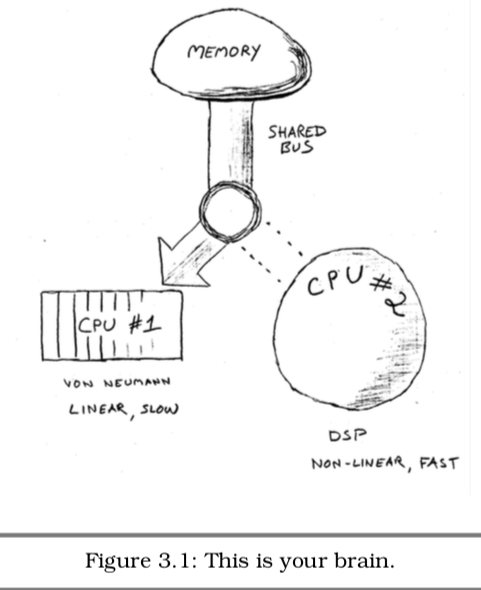
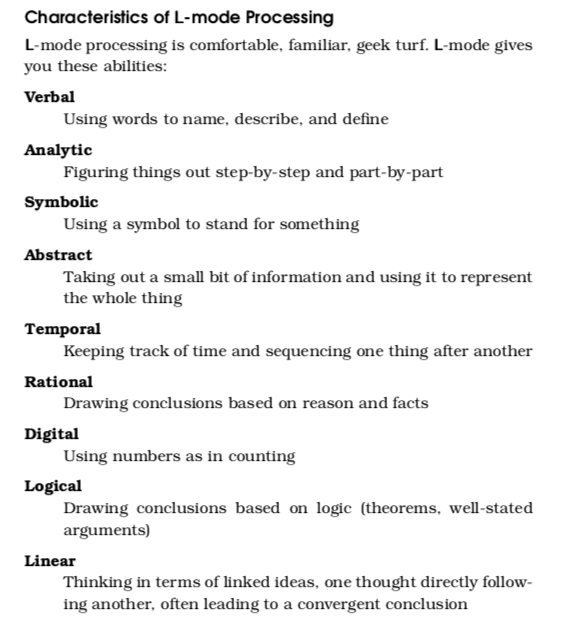 | 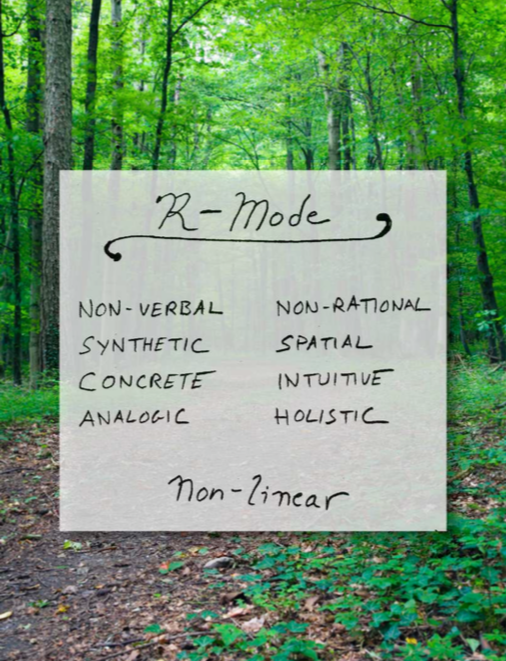 |
- Our brain needs refreshing. If it stops running, it forgets everything.
- The idea from R-mode is difficult to describe. Once you try to describe it in detail, it may go away.
- Be ready to capture any insight or idea at any time. Use notepad.
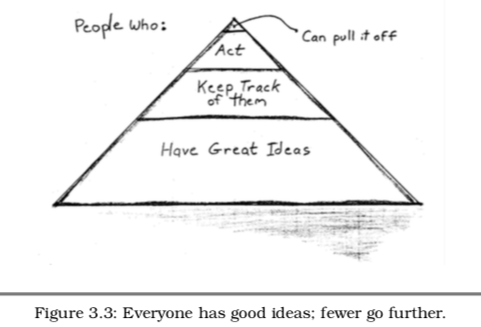
- Learning by synthesis vs. Learning by analysis. The better way to learn a frog is to build a one.
- I found an article on Active Learning by Synthesis. Not sure it’s the same idea as that of Andy’s.
- Design trumps features. Attractive works better.
- Your working environment needs to be rich in sensory opportunities. In a rich environment with things to learn, observe, and interact with, you will grow plenty of new neurons and new connections between them.
- Aesthetics makes difference. Recall the Broken Window Theory. The layout of your code and comments, the choice of variables, and the arrangement of your desktop.
- Just thinking that your brain has more capacity for learning makes it so.
- “Use it or lose it.” Your brain will dedicate more resources to whatever you are doing the most.
Next Actions:
- Make a short list of your favorite software applications and the ones you despise. How much does aesthetics play a role in your choices?
- What aspects of your work and life target L-mode? What aspects target R-mode? Are they in balance? What will do differently if not?
- Keep a doodle pad on your desk and keep something for $24 \times 7$ note taking.
Try This:
- Make a conscious effort to learn something new primarily by synthesis, instead of analysis.
- Try creating your next software design away from the keyboard and monitor.
##
